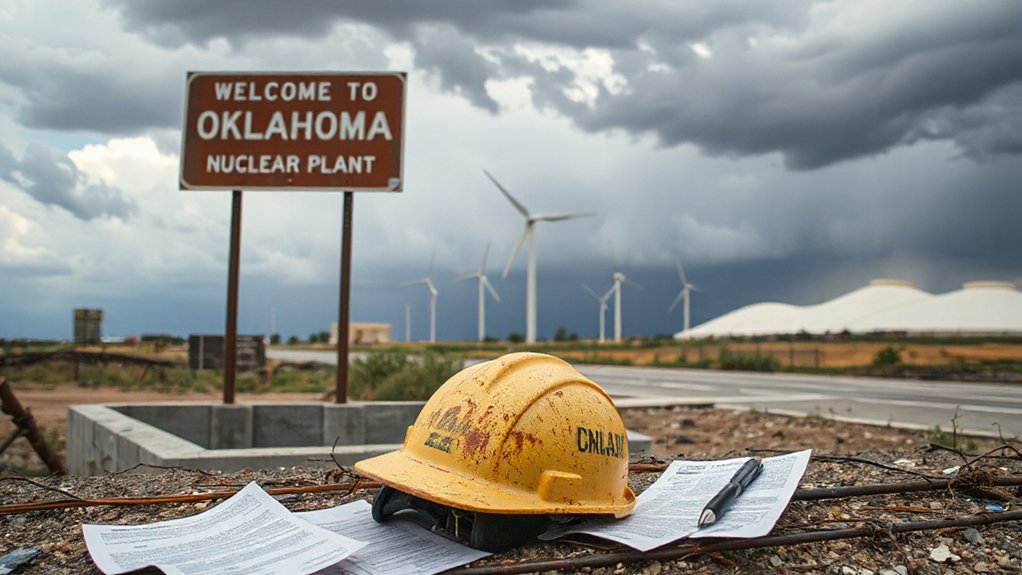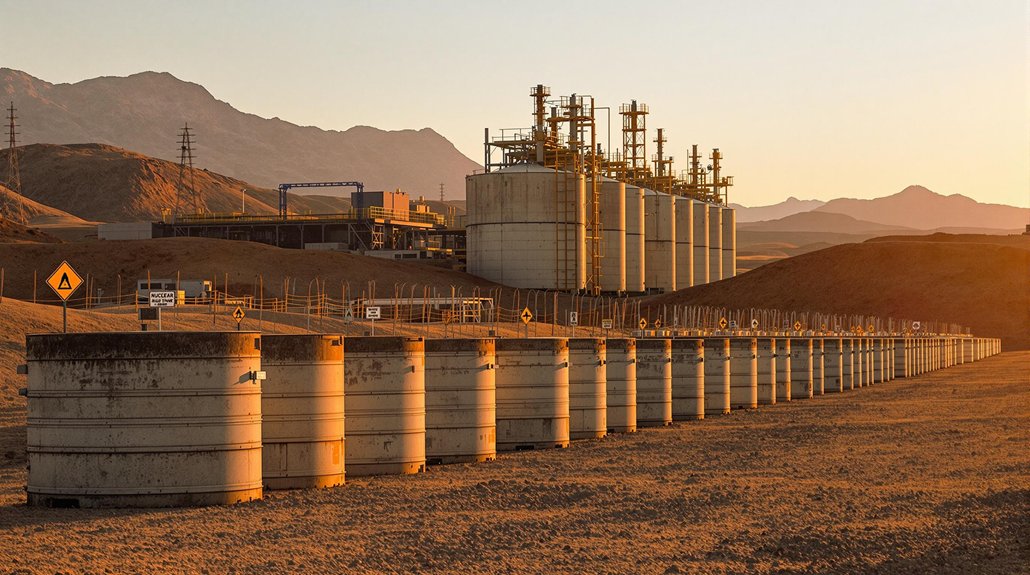Nearly a century after the dawn of commercial nuclear power, Oklahoma is finally dipping its toes into the atomic waters. Senate Bill 130, signed into law in June 2025, mandates the state’s first-ever nuclear energy feasibility study. Better late than never, right?
Oklahoma joins the nuclear party fashionably late with a feasibility study that screams “better late than never.”
The Oklahoma Corporation Commission (OCC) has been tasked with completing this extensive review by March 2026. Just nine months to figure out if splitting atoms makes sense in the Sooner State. No pressure.
The study will examine everything from technical feasibility to environmental impacts of nuclear development. Small modular reactors and microreactors are getting special attention. Oklahoma currently has zero nuclear facilities, so they’re starting from scratch.
Senator George Burns and Representative Brad Boles championed the legislation, which requires the OCC to hire an outside consulting firm within 90 days. Sounds straightforward enough. Except for one tiny detail—they forgot the money.
Lawmakers mandated this ambitious study but provided exactly zero dollars to fund it. Classic government move. The OCC must now absorb the costs, potentially sacrificing other priorities to study nuclear power’s viability.
Commissioner Todd Hiett summed it up perfectly: “We’ll have to drop a lot of things to do this.”
If hiring consultants proves too expensive, the law allows the commission to conduct a notice of inquiry and gather stakeholder input instead. Budget nuclear study for budget nuclear plants? Seems fitting.
The study aims to create a “clear, data-driven roadmap” for nuclear development in Oklahoma, identifying ideal locations near military bases or industrial centers.
It’ll assess everything from workforce needs to potential federal funding sources. This comes as many states consider alternatives to natural gas, which despite its carbon reductions compared to coal, still faces scrutiny over methane leaks. The initiative follows a national trend of states like Texas, Michigan, and Indiana introducing supportive nuclear energy legislation. Public reaction to the initiative has been decidedly mixed, with some residents voicing concerns about hazardous waste and long-term environmental impacts.
But the elephant in the room remains economics. Nuclear power requires massive upfront capital and years of construction. Oklahoma wants the benefits of clean, reliable nuclear energy without acknowledging the financial realities.
References
- https://www.okenergytoday.com/2025/10/oklahoma-advances-nuclear-energy-feasibility-study/
- https://www.nucnet.org/news/oklahoma-becomes-latest-state-to-consider-nuclear-as-regulators-push-ahead-with-study-10-4-2025
- https://oksenate.gov/press-releases/governor-signs-senator-george-burns-bill-study-nuclear-energy-potential-oklahoma?back=/press-releases/2025-06
- https://www.okenergytoday.com/2025/10/regulators-move-ahead-with-nuclear-study-but-reluctantly-without-funding/
- https://www.oklegislature.gov/cf_pdf/2025-26 ENR/SB/SB130 ENR.PDF
- https://www.oklahoman.com/story/business/energy-resource/2025/09/07/oklahoma-corporation-commission-studying-nuclear-energy/85962973007/
- https://www.kosu.org/show/stateimpact-oklahoma/2025-09-25/oklahoma-regulators-to-balance-costly-nuclear-potential-with-projected-wave-of-energy-demand
- https://www.kgou.org/energy/2025-08-28/oklahoma-corporation-commission-takes-first-step-toward-nuclear-energy-study









